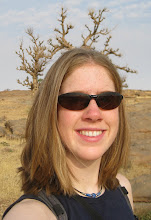As many of you may know, I'm home from Mali! Currently in the process of studying for the GRE, applying for graduate school and looking for jobs, I'm living between Eugene and Seattle until I get more settled (read: find a job). I don't have too much more to add to this blog, but I will post this and at least one other entry before I throw in the blogging towel. This entry is about the another project that I was involved with this year.
In May of 2011, I facilitated a 3 day training on the production of shea butter soap and shea butter lotion with the shea association that I had been working with for 2 years. Over 36 women and 4 men came from 4 different villages to participate. Our trainer, Sali Traore, has conducted shea butter soap trainings for multiple volunteers and the associations they work with. She taught the women how to make a shea butter pomade without fragrance, a shea butter and vaseline pomade with fragrance, and various mixtures of shea butter and palm oil soap with and without fragrance. This was a pretty exciting training for me, because the women that I worked with were so excited to learn these skills. In two years, I had never seen such excitement. Many commented, "I've always wanted to learn how to make soap like this." About a month after the training, the association met to make a second batch of soap, to be sure that they could do it even without the trainer around.
Women from the association bought all of the bars of soap from both of these occasions, and bought all of the shea butter lotion. Through this, they were able to re-earn all of the money that they had put towards the training (about $100), and double the amount of money they had in their savings account (now about $400). Each month, the women give each other micro-loans with this money, which they then return with interest the following month. Women use this money to do their own small business enterprises, or to pay for food and medicine if the need arises. With this method, and monthly fees, the group's money is constantly increasing. When the time comes to make shea butter products during the dry season, they use this money to pay for the materials they need. Each association member is also required to provide 2 large tins of boiled shea nuts to the association each year - this is what they use to make the shea butter that they sell (or that they now turn into soap!). This is a really small amount of nuts, but it's a great start for this small association.
I am so proud of the women that I worked with during the last two years. When I arrived, they had less than $40 in their account, were not meeting regularly, and were fighting constantly. While fights still happen regularly (the President is not one to be questioned), the association has ten times the amount of money that they started with, and is meeting monthly. During the training this year, they even recorded a tape for our village radio station, encouraging all of the women in the commune to join.
It took me nearly 1.5 years to fully (well, probably not fully) understand the association, shea butter in Mali, and how I could help them. It's sad that my Peace Corps service is over now that I better understand how to be effective. But, that's one of the downfalls of Peace Corps, and many think that Peace Corps should be 3 years instead of 2, and I full-heartedly agree...but how many people would commit to 3 years? There are also those who would say Peace Corps should be only 6 months...but then, it wouldn't be Peace Corps, would it?
Anyway, this shea butter soap and lotion project was quite a success, and I thank all of my friends and family who donated money toward the project and made it happen! Thank you so much! Aw ni ce, aw ni baaraji. Ala k'aw sara! Ala k'an to nyogonye.
And for your viewing pleasure: First a video of the association making shea butter in early May. We used this shea butter to make the soap and lotion, and it was one the association's many contributions to the project:
Second, a video of the women singing, dancing, drinking tea and making soap at the training:
Stirring the shea butter and palm oil soap is a multi-person job. It gets much harder the closer you get to being done. And yes, we did use large sticks to get the job done:
Here I am using the ProKarite Shea cards from the Peace Corps/Mali Food Security Tool Kit to teach the association about the best practices for producing shea butter. They've heard this information many times before, but there are still many ways that they can improve.
The entire training group on day 2 of our training:
Our trainer, Sali (in green and white) helping Fatumata cut the first block of soap with our new soap table:
The treasurer of the association, Mayi, counting up all of the soap and lotion, which was divided sold equally and among the 4 villages:
Alright, all for now, I will try to post one more on here in the near future!
Wednesday, October 19, 2011
Subscribe to:
Comments (Atom)












